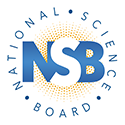

Members Present:Eamon M. Kelly, ChairmanAnita K. Jones, Vice Chair John A. Armstrong Nina V. Fedoroff Pamela A. Ferguson Mary K. Gaillard M.R.C. Greenwood George M. Langford Jane Lubchenco Joseph A. Miller, Jr. Robert C. Richardson Michael G. Rossmann Maxine Savitz Luis Sequeira Daniel Simberloff Bob H. Suzuki Richard Tapia Warren M. Washington John A. White, Jr. Rita R. Colwell, NSF Director |
Members Absent:Stanley V. JaskolskiDiana S. Natalicio Vera Rubin Chang-Lin Tien Consultant Absent:Mark S. Wrighton |